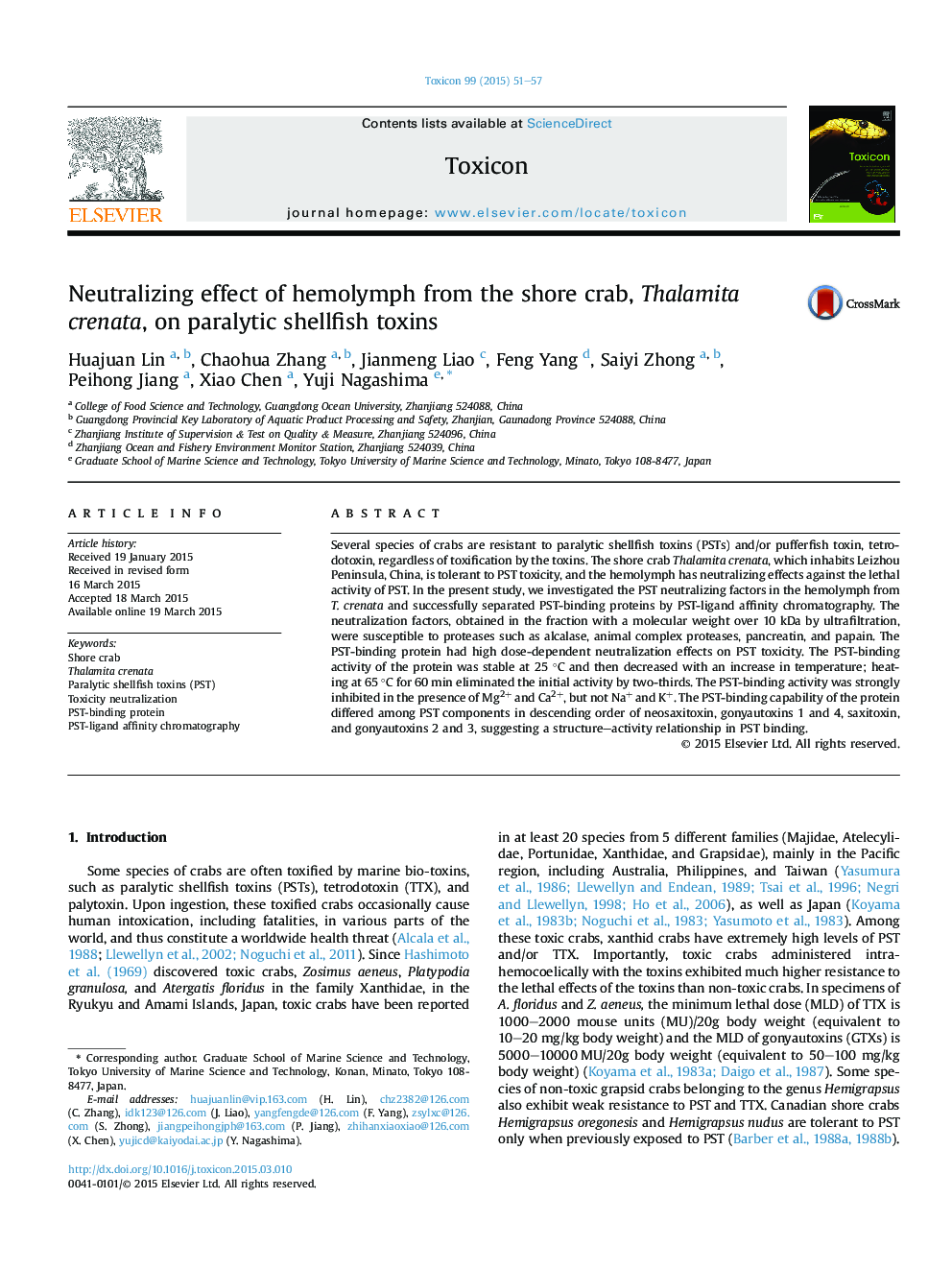| Article ID | Journal | Published Year | Pages | File Type |
|---|---|---|---|---|
| 8395552 | Toxicon | 2015 | 7 Pages |
Abstract
Several species of crabs are resistant to paralytic shellfish toxins (PSTs) and/or pufferfish toxin, tetrodotoxin, regardless of toxification by the toxins. The shore crab Thalamita crenata, which inhabits Leizhou Peninsula, China, is tolerant to PST toxicity, and the hemolymph has neutralizing effects against the lethal activity of PST. In the present study, we investigated the PST neutralizing factors in the hemolymph from T. crenata and successfully separated PST-binding proteins by PST-ligand affinity chromatography. The neutralization factors, obtained in the fraction with a molecular weight over 10 kDa by ultrafiltration, were susceptible to proteases such as alcalase, animal complex proteases, pancreatin, and papain. The PST-binding protein had high dose-dependent neutralization effects on PST toxicity. The PST-binding activity of the protein was stable at 25 °C and then decreased with an increase in temperature; heating at 65 °C for 60 min eliminated the initial activity by two-thirds. The PST-binding activity was strongly inhibited in the presence of Mg2+ and Ca2+, but not Na+ and K+. The PST-binding capability of the protein differed among PST components in descending order of neosaxitoxin, gonyautoxins 1 and 4, saxitoxin, and gonyautoxins 2 and 3, suggesting a structure-activity relationship in PST binding.
Related Topics
Life Sciences
Biochemistry, Genetics and Molecular Biology
Biochemistry, Genetics and Molecular Biology (General)
Authors
Huajuan Lin, Chaohua Zhang, Jianmeng Liao, Feng Yang, Saiyi Zhong, Peihong Jiang, Xiao Chen, Yuji Nagashima,
